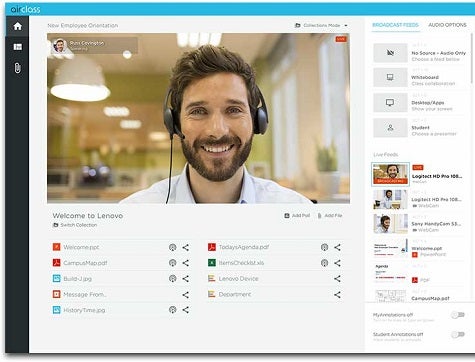Education becomes more virtual with each passing day. The challenge is that it’s often difficult for instructors to gauge the real level of engagement being achieved. To provide more insight into that virtual education experience, Lenovo is employing facial recognition technology within a Lenovo AirClass virtual training software to provide instructors with scores about the level of engagement any student is having with a piece of content.
Lenovo AirClass now tracks 68 facial features to gauge the level of student engagement. That data is fed into an analytics application that then generates an engagement score.
Rick German, general manager for Lenovo Software, says Lenovo is working toward, at the very least, putting the virtual learning experience on par with being in a live classroom.
“We think it can be equal to or even better,” says German.
Priced at $69 per user per month, Lenovo has also added a replay and break-out room capabilities along with an ability to annotate white boards.
Whether it’s a school classroom or a facility that specializes in corporate training, the whole physical requirement of having to move people from one location to another to learn a skill is one of the primary reasons there is such a skills shortage in the first place. Of course, organizations that specialize in teaching have a lot invested in physical locations such as campuses. But as the rate at which individuals need to acquire new skills or update their existing ones continues to increase, the practicality of sending people off to school to learn a specific skill is in many cases simply no longer practical.



